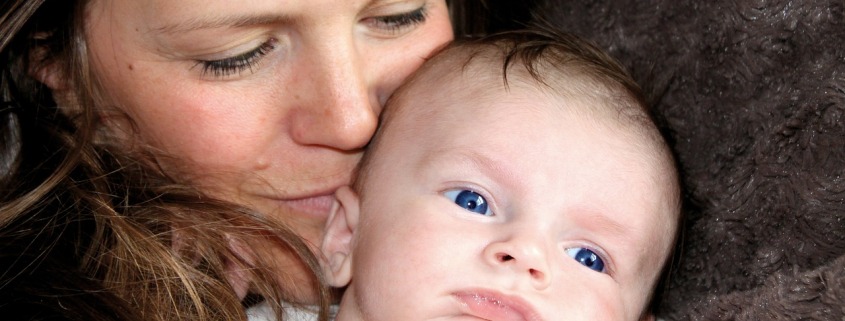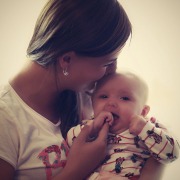Responsive parenting is the way our species does parental care
Responsive parenting series part 1
This post is the first of a three part series on responsive parenting. Responsive parenting, in a nutshell, means parenting that is responsive to the signals or cues of your child. It is warm, caring and on cue. Responsiveness is often understood within an attachment theory framework (responsive parenting predicts secure attachment styles in children) but I’m not going to go into that here. In fact, apart from this short introduction, I won’t be mentioning attachment at all. This isn’t because attachment theory isn’t valuable. It is because it can be useful to view parental responsiveness from other angles too to get a full and complete picture of responsiveness.
Parental responsiveness is, quite simply, the way that our species provides parental care. To understand why we need to compare a newborn human with other newborn mammals and to delve into our evolutionary past. Consider a newborn lamb who within hours of birth is able to walk. Then consider what a newborn human is like: immobile, neurodevelopmentally immature and with little direct control over their environment. Parental care is crucial to all mammals and there are two distinct patterns. Some mammals are precocial, their young are born neurodevelopmentally mature with early mobility, for example sheep. For precocial mammals, parental care still happens, but the offspring are able to follow or cling to the mother. Precocial mammals produce a high lactose milk, perfect for a mobile infant who is able to follow the mother and feed frequently and at will. Singleton birth is the norm. Other mammals are altricial, their young are born neurodevelopmentally immature, for example, mice. Altricial mammals typically give birth to litters and nest. They produce milk with high fat content, allowing the young to survive lengthy periods in between feeds while the mother leaves the nest and forages for food.
Humans evolved from precocial ancestors and we still have many characteristics typical of prococial mammals. For example, singleton birth is the norm, human milk is high lactose, and our babies thrive with demand feeding, that is feeding at will, and often frequently, just like prococial mammals (regardless of whether breastmilk or formula is given). But our babies aren’t prococial. Far from it… At birth they can’t even hold up their own massive head… We are secondarily altricial. Why? Well, that massive head is the clue. A lengthy, dependent childhood is the price we must pay for our large brains. It has been suggested that we have to give birth to our babies ‘prematurely’, while their huge heads are still small enough to fit through the birth canal. But it may simply be that supporting the growth of such a large brain to sufficient neurodevelopmental maturity to be precocial simply outstrips the maternal body’s metabolism. Either way, the price of our large brains is that we are secondarily altricial.
So, we give birth to neurodevelopmentally immature, immobile, utterly dependent babies who are primed for the near constant contact, and at-will feeding that prococial mammals easily obtain by simply following or clinging to the mother. We cannot nest, there is no litter to nest our young with. And, we feed them high-lactose, easily digested milk, the kind of milk that necessitates frequent at-will feeding patterns (even formula is based on the nutritional properties of human milk and so, although there may be differences between breastmilk and formula, the basic point still applies). Well, how did evolution solve that one? I’d argue there is only one solution. Only one. The parent must bridge the gap. The parent must be the one to ensure that their child remains close. The parent must notice their child’s signals or cues, be aware of their child’s needs, and respond. The solution is parental responsiveness. Responsiveness is the way our species does parental care.
The next time you find yourself mulling about how tough parenting can be, I agree. In terms of parental care, our species carries a heavy burden. But that burden is, quite literally, the price we’ve paid, the price we had to pay for humanity.
And there’s another reason for that too… So make sure you return for the next post in this series.
Apply it to your life: Was our high parenting burden a fair price to pay for humanity? Does putting parental responsiveness in an evolutionary context help you to understand why it is so important?
References:
Ball, H. (2009). Bed-sharing and co-sleeping: research overview. NCT New Digest, 48, 22-27. http://dro.dur.ac.uk/6691/1/6691.pdf
Dunsworth, H.M., Warrener, A.G., Deacon, T., Ellison, P.T., & Pontzer, H. (2012). Metabolic hypothesis for human altriciality. PNAS, 109 (38), 15212-1562. http://www.pnas.org/content/109/38/15212













Leave a Reply
Want to join the discussion?Feel free to contribute!